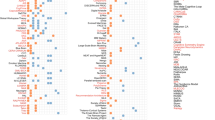Abstract
For more than one decade, Andy Clark has defended the now-famous extended mind thesis, the idea that cognitive processes leak into the world. In this paper I analyse Clark’s theoretical justification for the thesis: explanatory simplicity. I argue that his way of justifying the thesis leads into contradiction, either at the level of propositional attitude ascriptions or at the theoretical level. I evaluate three possible strategies of dealing with this issue, concluding that they are all likely to fail and that therefore, as regards explanatory simplicity, the burden of proof is on Clark’s side. The paper divides into two main sections: in “Simplicity and Coherence”, I define the two concepts that are important in this context (simplicity and explanatory coherence). In “How to Cope with Coherence”, these two concepts are applied to the central thought experiment, the Inga/Otto case. It will be shown that justifying the extended mind thesis by reference to simplicity may cause trouble, because ‘extended’ behavioural descriptions are likely to yield rather complicated explanations.
Similar content being viewed by others
Notes
This is Clark’s term. There are many synonyms: HEC (Hypothesis of Extended Cognition), active externalism, transcranialism, vehicle externalism, EM (Extended Mind Thesis), EXTENDED, to name but a few.
There is of course an independent discussion of the concept of simplicity going on in philosophy of science. Suffice it to say that here I am only concerned with elegance rather than parsimony.
Clark argues for this claim by falsifying the opposite. He calls the opponent’s counterargument “the Otto two-step” and aims to show that explanations of Otto’s behaviour that do not assume an extended system are unnecessarily more complicated than the alternative based on TXM (Clark 2010, 46–47).
When I speak of ‘simpler’ or ‘more complicated’ explanations without further constraints, I always mean: simpler (more complicated) in comparison with classical, non-extended frameworks.
Commonsense functionalism does not define functional roles of beliefs regarding particular propositions but rather captures generalisations of propositional attitudes (cf. Lewis 1972, 256, note 13). But descriptions of functional roles of beliefs related to particular propositions must be inferable from the theory.
Functional state descriptions basically consist of three sets: a set of inputs, a set of outputs and a set of relations that hold among functional states. (a) and (b) are of the third kind, i.e. they link mental states to other mental states (beliefs to beliefs and experiences to beliefs in this case).
By “meta-theoretical” I just mean that the features in question are supposed to be universal features, applicable to theories in general. When Clark and Chalmers say that ‘in an explanation, simplicity is power’, they clearly do not make any TXM-specific claims.
This holds under the assumption that Clark does not want to pursue one of the first two strategies presented in “First Strategy: Accepting the Coherence Requirement in the Strict Sense” and “Second Strategy: Rejecting the Coherence Requirement Altogether”.
References
Braddon-Mitchell, D., & Jackson, F. (2008). The philosophy of mind and cognition. Malden: Blackwell.
Clark, A. (2005). Intrinsic content, active memory and the extended mind. Analysis, 65, 1–11.
Clark, A. (2008). Supersizing the mind. New York: Oxford University Press.
Clark, A. (2010). Memento’s revenge: The extended mind, extended. In R. Menary (Ed.), The extended mind (pp. 43–67). Cambridge: MIT Press.
Clark, A., & Chalmers, D. (1998). The extended mind. Analysis, 58, 7–19.
Kyselo, M., & Walter, S. (2011). Belief integration in action: a defense of extended beliefs. Philosophical Psychology, 24, 245–260.
Lewis, D. (1972). Psychophysical and theoretical identifications. Australasian Journal of Philosophy, 50, 249–258.
Weiskopf, D. A. (2008). Patrolling the mind’s boundaries. Erkenntnis, 68, 265–276.
Author information
Authors and Affiliations
Corresponding author
Rights and permissions
About this article
Cite this article
auf der Straße, A. Simply Extended Mind. Philosophia 40, 449–458 (2012). https://doi.org/10.1007/s11406-011-9353-2
Received:
Accepted:
Published:
Issue Date:
DOI: https://doi.org/10.1007/s11406-011-9353-2




